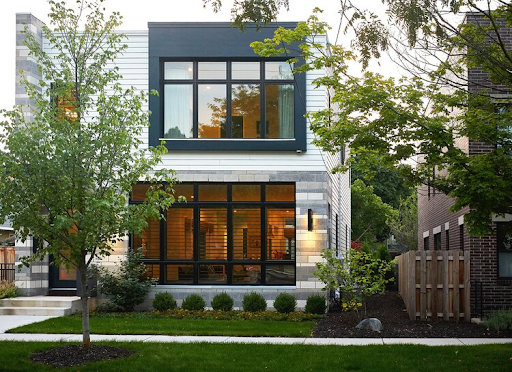
If you’re considering buying a home in Denver, locking in a low mortgage rate should be a top priority. With home prices in the city having surged by over 10% in the past year, securing an affordable mortgage rate can make a big difference in your overall costs. This guide breaks down the factors affecting mortgage rates and provides practical tips for securing the best possible deal.
Understanding Mortgage Rates
Mortgage rates can be tricky to understand, but at their core, they represent the cost of borrowing money for your home, expressed as a percentage of the loan amount. Knowing how these rates are determined and what influences them can help you make more informed decisions during your home-buying journey.
Factors That Influence Mortgage Rates in Denver
Several factors play a role in determining mortgage rates:
Economic Conditions
The health of the economy—such as inflation, unemployment, and overall growth—affects mortgage rates. Typically, when the economy is thriving, mortgage rates rise, while they tend to drop during economic downturns.
Federal Reserve Policies
The Federal Reserve’s decisions, particularly regarding the federal funds rate, have a significant impact on mortgage rates. When the Fed raises rates to combat inflation, mortgage rates usually follow suit.
Loan Types
The type of loan you choose can affect the rate you’re offered. Fixed-rate mortgages offer stability, while adjustable-rate mortgages (ARMs) might start with lower rates, but can increase over time.
Lender Pricing Models
Each lender sets its own rates, which is why it’s important to shop around for different quotes. The lender’s pricing model can have a significant impact on your final rate.
Down Payment Amount
The size of your down payment also influences your rate. A larger down payment reduces the lender’s risk, which can lead to a lower interest rate.
Tips for Securing a Low Mortgage Rate
Now that you understand the factors influencing mortgage rates, here are some practical tips to help you secure a lower rate:
Shop Around
Don’t settle for the first quote you receive. Compare rates from different lenders, including banks, credit unions, and online mortgage companies. Each may offer different terms, so it’s worth checking around.
Work with a Mortgage Broker
A mortgage broker can help you find a lower rate by connecting you with multiple lenders and negotiating on your behalf.
Improve Your Credit Score
A higher credit score can lead to a better mortgage rate. Before applying, work on reducing your debts, avoid opening new credit accounts, and ensure your credit report is error-free. For more tips on improving your credit score before applying for a mortgage, check out our guide on credit improvement.
Opt for a Shorter Loan Term
While 30-year fixed mortgages are the most popular, shorter loan terms like 15 or 20 years typically come with lower interest rates. It’s worth considering if it fits your budget.
Consider Rate Locks
If you come across a great rate, consider locking it in, especially if the market is volatile. This can protect you from rate fluctuations before you close on your home.
Increase Your Down Payment
If possible, aim for a 20% or more down payment. This not only helps you avoid private mortgage insurance (PMI), but can also result in a lower interest rate.
The Importance of Your Credit Score in Mortgage Rates
Your credit score plays a key role in securing a low mortgage rate. Lenders use it to assess the risk you present as a borrower—higher scores signal less risk. Here’s how you can make your credit score work in your favor:
Check Your Credit Score Early
Before you start house hunting, get a free copy of your credit report and check your score. This will give you time to address any issues that may be affecting your score.
Pay Down Debt
Reducing outstanding debt—especially credit card balances—can help boost your score and increase your chances of getting a better rate.
Avoid Opening New Credit Accounts
Opening new credit lines can negatively impact your score. Try to avoid doing so in the six months leading up to your mortgage application.
Timing Your Home Purchase for the Best Rates
When you buy your home can affect the mortgage rate you receive. Here are some tips for timing your purchase:
Monitor Market Trends
Stay informed about current mortgage rate trends. Rates can fluctuate based on market conditions, so timing your purchase during a dip can save you money.
Consider Seasonal Trends
The housing market typically slows down in the winter, meaning there may be fewer buyers competing for homes. This could lead to better rates and more favorable terms.
Be Prepared to Act Quickly
When you find a low mortgage rate, be ready to act fast. Rates can change quickly based on market conditions, so jumping at a great rate can make a significant difference.
Conclusion
In Denver’s competitive housing market, securing a low mortgage rate is crucial to getting the best deal on your new home. By understanding the factors that influence mortgage rates, improving your credit score, shopping around for lenders, and timing your purchase wisely, you can position yourself to lock in a great rate.
Start by consulting with a local mortgage expert who can guide you through the process and help you develop a plan that aligns with your financial goals in Denver’s dynamic real estate market. If you're also wondering about lowball offers or ways to save on closing costs, be sure to explore those options as well.